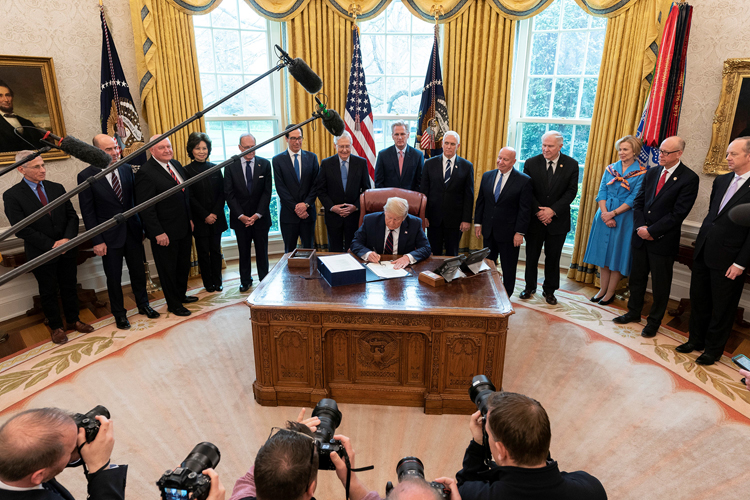About half of low-income Latino households and just as many Latino-owned businesses said they have not received any support from the massive COVID-19 relief bills, according to a nationwide poll released Wednesday.
The survey of 1,800 Latinos across all 50 states oversampled residents of six states, including Arizona. What it found was 48% of Latino households making under $25,000 did not receive any support. The same was true for small Latino-owned businesses, half which reported not being able to receive loans under the original stimulus bill.
Businesses in Arizona are no exception, said Tanairi Ochoa-Martinez, director of Fuerza Local, a nonprofit that supports Latino-owned businesses in the state.
“I’ve worked with hundreds of businesses and I can count on one hand how many businesses have been approved and actually received those funds,” Ochoa-Martinez said of the federal Paycheck Protection Program.
That $660 billion program directed Small Business Administration loans to businesses hit by COVID-19 shutdowns, with the possibility that the loans would be forgiven if the money was used to keep workers on the payroll through the pandemic.
The program was plagued early on by cumbersome forms, long wait times and confusion that steered the funds toward large and profitable companies. But Congress approved a second round of funding and the problems were worked through, and Arizona businesses are starting to see the benefits, said one official.
Yvette Uriondo, a senior business consultant at Phoenix Minority Business Development Agency Business Center, said that almost $8.9 billion in PPP loans have been approved for state businesses since the program began last month.
But Ochoa-Martinez said more needs to be done to make sure the money gets to the small businesses it was designed to help, noting that fast-food chain Shake Shack, for example, was able to get a PPP loan. The company later said it would return the money.
“We need to hold the SBA accountable, we need to hold the federal government accountable, and we need to hold those third parties that are processing these loans accountable,” Ochoa-Martinez said.
Both Uriondo and Ochoa-Martinez cite language barriers and lack of educational resources in minority communities as potential reasons why Latinos say they have not been able to get the funding they need.
Another could be immigration status – the $2 trillion Coronavirus Aid, Relief and Economic Security (CARES) Act prohibits assistance to undocumented immigrants living in the country.
Sen. Catherine Cortez Masto, D-Nev., and Rep. Joaquin Castro, D-Texas, who were on the call Wednesday as the poll was released, called for support of legislation like the Coronavirus Immigrant Families Protection Act, to make sure migrants can get federal COVID-19 relief.
“We also have to make sure that many in our community have access to other economic relief, whether it’s in the form of rebates or unemployment insurance,” Cortez Masto said. “Because there’s so many working and contributing in our community, so this to me is a fight.”
The survey of registered voters by Latino Decisions was taken from May 10-16 and had a margin of error of plus or minute 2.3% on the national level. It was produced for MoveOn, Somos and UnidosUS.
Among the findings specific to Arizona, the survey found 25% of Latinos in the state said they or someone they knew were not able to get tested for the virus. The Arizona Department of Health Services reported that, as of Wednesday, Latinos made up 19% of the 14,897 people who had tested positive for the disease in the state.
The New York/New Jersey area had the highest percentage of Latinos who said they could not get a test or who knew someone with the disease, at 39% for both.
The numbers in the survey point out the challenge faced by people of color as they try to copy with the COVID-19 pandemic, speakers said.
“For many politicians, even well-intentioned ones, the Latino community is still a blind spot,” Castro said. “And this work is important in shedding light on the impact of this pandemic, which has been both a public health emergency and an economic emergency for many Americans, but most especially for Latino Americans.”
Story by Farah Eltohamy, Cronkite News




